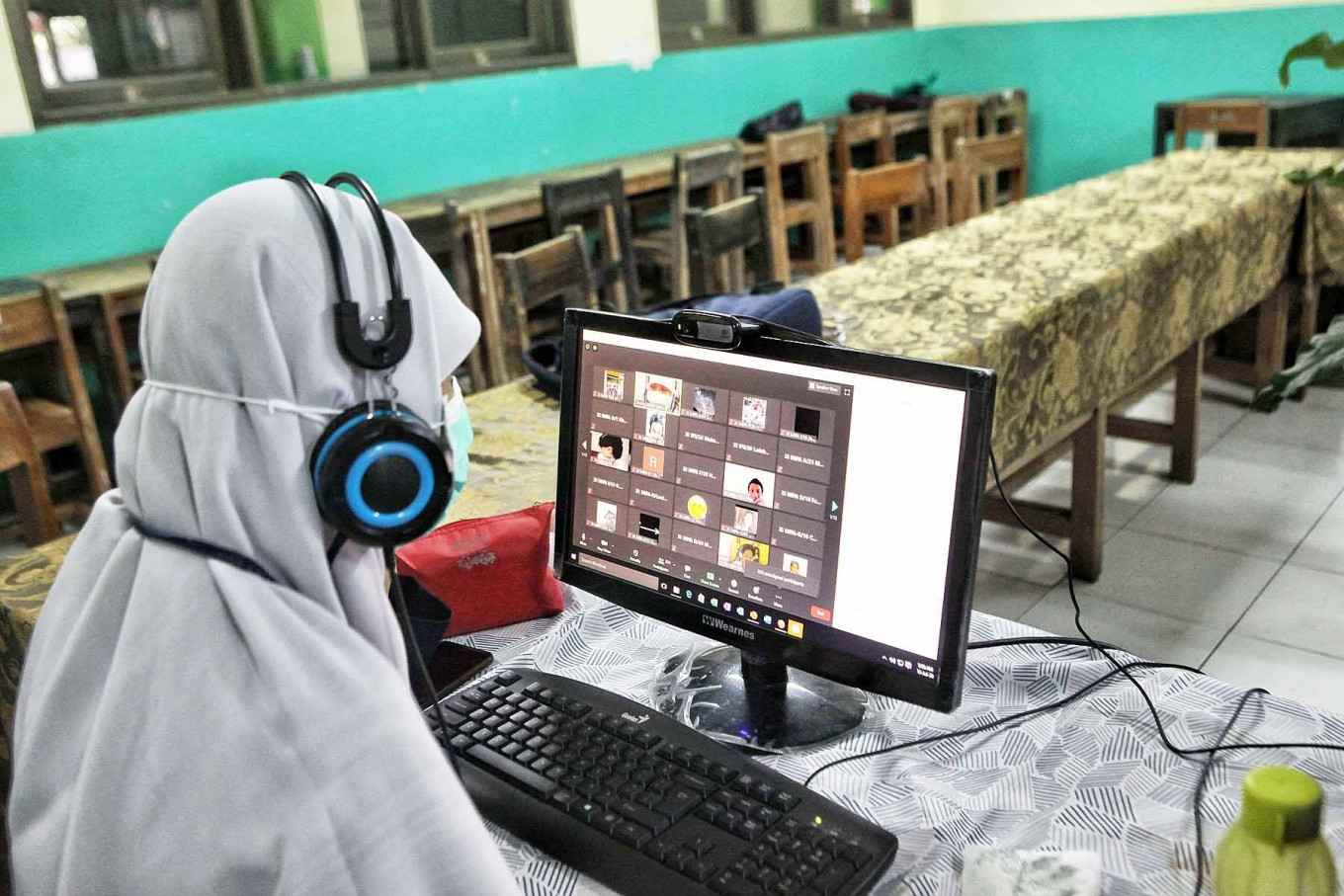Popular Reads
Top Results
Can't find what you're looking for?
View all search resultsPopular Reads
Top Results
Can't find what you're looking for?
View all search resultsGovt to allow schools outside green zones to reopen
"The Education and Culture Ministry has set up measures [for the reopening] and maybe in the near future the ministry's officials will announce which areas outside the green zones are allowed to reopen schools," head of the national COVID-19 task force Doni Monardo said on Monday as reported by kompas.com.
Change text size
Gift Premium Articles
to Anyone
N
ational COVID-19 task force head Doni Monardo said on Monday that the government would allow the reopening of schools outside green zones, areas with the lowest risk of COVID-19 transmission.
Doni explained that in the near future the Education and Culture Ministry would announced which areas would be permitted to reopen their schools.
"The Education and Culture Ministry has set up measures [for the reopening] and maybe in the near future the ministry's officials will announce which areas outside the green zones are allowed to reopen schools," Doni said in a press conference on Monday as reported by kompas.com.
Since July, the Education and Culture Ministry has allowed phased reopening of schools located in green zones.
Read also: Schools could become new clusters of COVID-19 transmission: Indonesian Red Cross
The national COVID-19 task force has mapped the risk status of all regions in the country affected by the COVID-19 pandemic based on 15 indicators from the World Health Organization. The indicators, which comprise the number of new cases, suspects and fatalities, among other things, determine whether each region falls into the green, yellow, orange or red category.
Education and Culture Minister Nadiem Makarim said the number of students in those areas was roughly equivalent to 6 percent of all students in the country, meaning that the remaining 94 percent had to continue their education through online learning
Doni said the duration of face-to-face learning at schools would be limited as well as the number of students attending the classes to minimize the risk of COVID-19 transmission.
"Although online learning is very effective to curb the spread of COVID-19 transmission, there are a lot of students in rural areas who are struggling to learn from home due to poor internet access," Doni said.
Read also: Life without internet: Bornean students learn by radio during pandemic
Doni expressed his appreciation for several regional administrations that had provided lessons through radio to accommodate students who don't have internet access.
"Several regional administrations have provided teachers with two-way radios [walkie-talkies] to teach their students. We appreciate their creativity and various measures they've taken so that students can continue their education despite all the limitations," he said. (nal)










